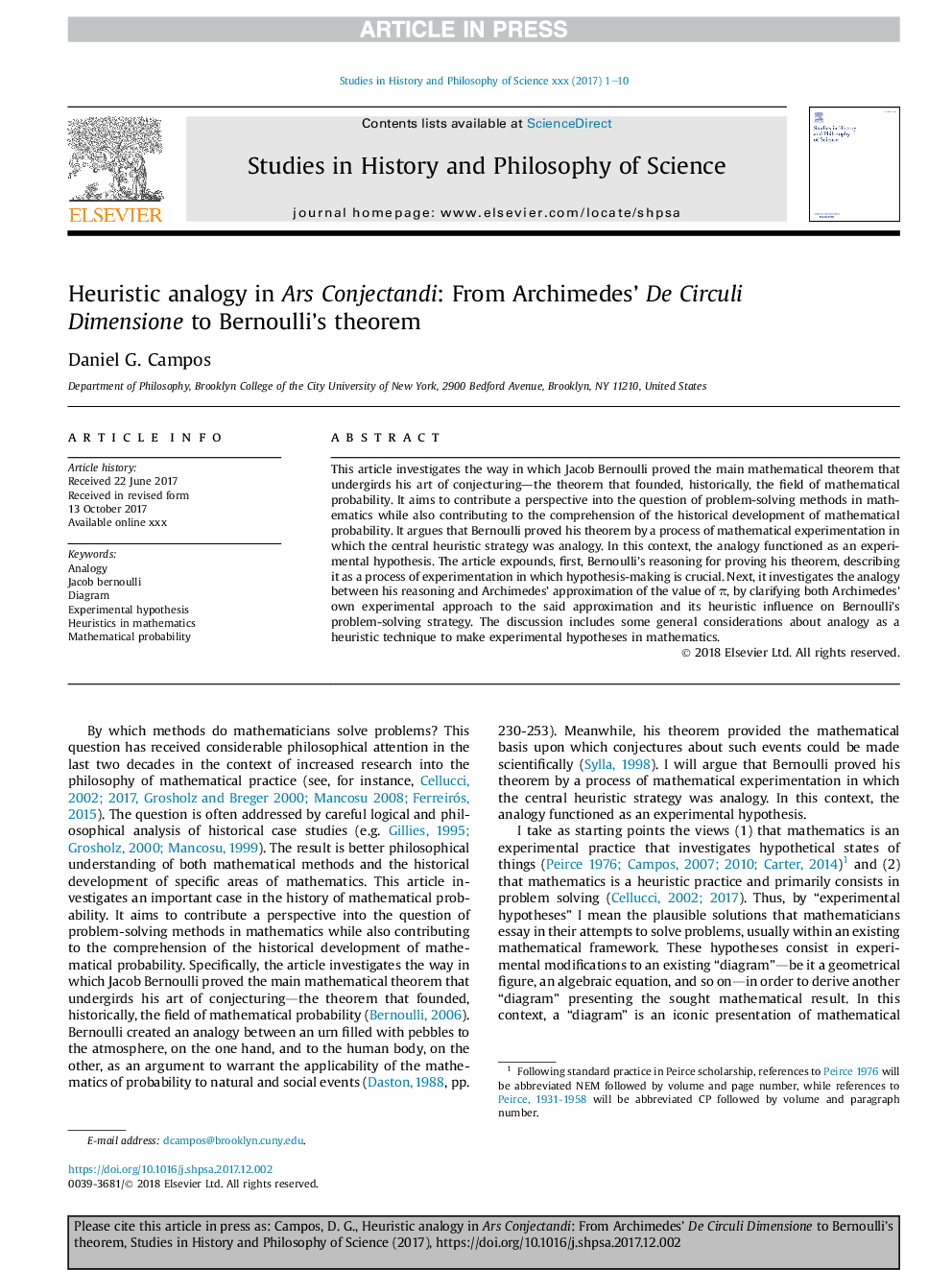| کد مقاله | کد نشریه | سال انتشار | مقاله انگلیسی | نسخه تمام متن |
|---|---|---|---|---|
| 7551588 | 1490316 | 2018 | 10 صفحه PDF | دانلود رایگان |
عنوان انگلیسی مقاله ISI
Heuristic analogy in Ars Conjectandi: From Archimedes' De Circuli Dimensione to Bernoulli's theorem
دانلود مقاله + سفارش ترجمه
دانلود مقاله ISI انگلیسی
رایگان برای ایرانیان
کلمات کلیدی
موضوعات مرتبط
علوم انسانی و اجتماعی
علوم انسانی و هنر
تاریخ
پیش نمایش صفحه اول مقاله

چکیده انگلیسی
This article investigates the way in which Jacob Bernoulli proved the main mathematical theorem that undergirds his art of conjecturing-the theorem that founded, historically, the field of mathematical probability. It aims to contribute a perspective into the question of problem-solving methods in mathematics while also contributing to the comprehension of the historical development of mathematical probability. It argues that Bernoulli proved his theorem by a process of mathematical experimentation in which the central heuristic strategy was analogy. In this context, the analogy functioned as an experimental hypothesis. The article expounds, first, Bernoulli's reasoning for proving his theorem, describing it as a process of experimentation in which hypothesis-making is crucial. Next, it investigates the analogy between his reasoning and Archimedes' approximation of the value of Ï, by clarifying both Archimedes' own experimental approach to the said approximation and its heuristic influence on Bernoulli's problem-solving strategy. The discussion includes some general considerations about analogy as a heuristic technique to make experimental hypotheses in mathematics.
ناشر
Database: Elsevier - ScienceDirect (ساینس دایرکت)
Journal: Studies in History and Philosophy of Science Part A - Volume 67, February 2018, Pages 44-53
Journal: Studies in History and Philosophy of Science Part A - Volume 67, February 2018, Pages 44-53
نویسندگان
Daniel G. Campos,